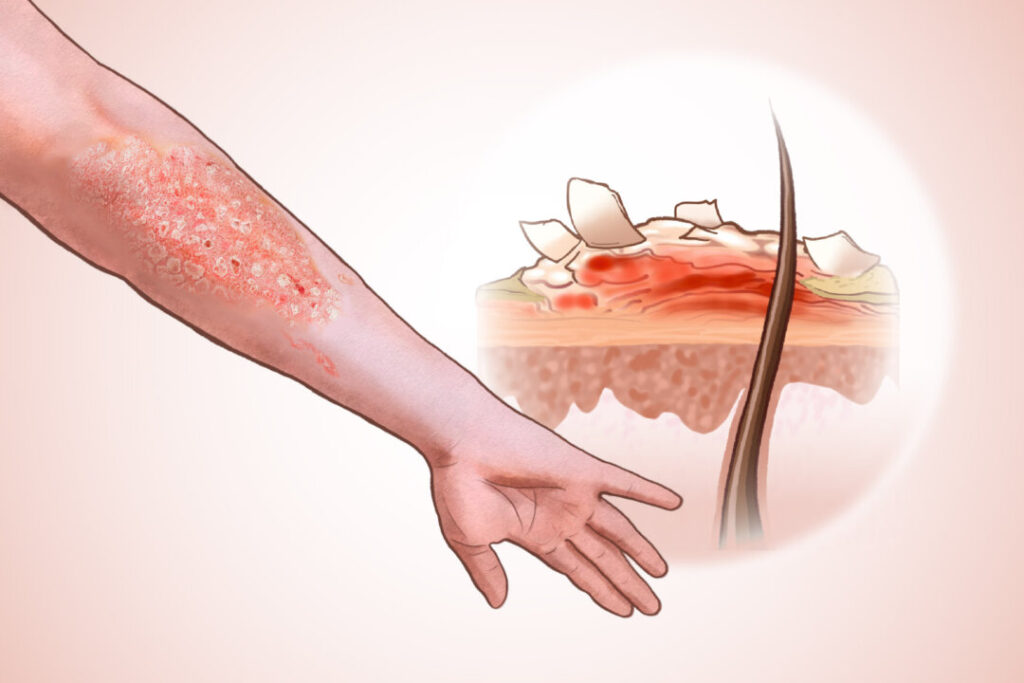
Psoriasis, the second most common autoimmune condition in the United States, affects millions of individuals. This complex disorder, rooted in genetics, leads the immune system to mistakenly attack healthy skin cells. As a result, individuals develop thick, scaly patches on various parts of their bodies, primarily on the lower back, elbows, knees, and scalp.
Though there is currently no cure for psoriasis, effective management strategies exist. Lifestyle changes, combined with medical treatments, can significantly improve quality of life for those affected. Here are five lifestyle approaches that may help manage this condition.
1. Adopt a Healthy Diet
Nutrition plays a crucial role in managing psoriasis symptoms. A balanced diet rich in anti-inflammatory foods can enhance overall health. This includes incorporating fruits, vegetables, whole grains, and healthy fats, such as those found in fish and nuts. Some studies suggest that certain diets, like the Mediterranean diet, may offer additional benefits by reducing inflammation.
2. Maintain a Healthy Weight
Excess weight can exacerbate psoriasis symptoms. Maintaining a healthy weight helps reduce the severity of flare-ups and improves treatment efficacy. Regular physical activity, combined with a nutritious diet, can aid in weight management and enhance overall well-being. Engaging in moderate exercises, such as walking or swimming, can be particularly beneficial.
3. Manage Stress Effectively
Stress is a known trigger for psoriasis flare-ups. Finding effective ways to manage stress is essential for individuals living with this condition. Techniques like mindfulness, yoga, and meditation can help mitigate stress levels. Additionally, seeking support from friends, family, or support groups can provide emotional relief and enhance coping mechanisms.
4. Practice Good Skin Care
Proper skin care is vital for those with psoriasis. Moisturizing regularly can help alleviate dryness and reduce the formation of plaques. It’s advisable to use fragrance-free and gentle skin care products to avoid irritation. Individuals should also take care to protect their skin from harsh weather conditions, which can worsen symptoms.
5. Avoid Triggers
Identifying and avoiding personal triggers is key to managing psoriasis. Common triggers include smoking, alcohol consumption, and certain medications. Keeping a symptom diary can assist individuals in recognizing patterns and avoiding factors that contribute to flare-ups.
In summary, while psoriasis presents significant challenges, adopting these lifestyle changes can lead to better management of symptoms. By focusing on diet, weight management, stress reduction, skin care, and trigger avoidance, individuals can work towards a fuller, more active life. As research continues to evolve, understanding the interplay between lifestyle choices and autoimmune conditions remains essential for effective management strategies.







